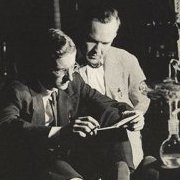
Everything posted by hypervalent_iodine
-
Banned/Suspended Users
The cleverly named Son_of_Hal has been banned as a sock puppet of Hal and ACUV.
-
Banned/Suspended Users
STeve555 has been banned for once again losing his mind and making a series of foul threads and posts.
-
New type of reputation system
Obviously, members who have been here longer or have more posts are, in general, going to have a higher net reputation attached to their profile than those who are less established. I am unsure where you are getting the idea that this is because people don't like to admit that they're wrong. Perhaps you could elaborate on this. I'm sorry, I really can't make heads or tails of what you're saying here. What isn't a coincidence? It's per user per day, with the exception of moderators, admins (both of whom I think have unlimited use) and resident experts (who are limited to 5 neg reps per day last I checked). We do this to avoid misuse and overuse of the negative rep points and to make people consider more carefully when giving them out. As well, I think the general idea is that positive reinforcement is preferred over negative, but that's not to say that both aren't needed from time to time. I doubt it would change the workload at all since, as I said, it's rare that something like that ever happens and staff are required to step in. And again, the limits on neg rep points do a lot to prevent this kind of behavior. Changing the name of the button does nothing to stop people from using it however they want, especially if the end result is still the same. As well as not being applicable to certain areas of the forum for which threads don't always have a correct answer, you're also precluding a lot of the other legitimate reasons people give out positive rep points to posts. I think what you're suggesting is quite a dry approach to things and in general, doesn't aim promote the types of interesting discussion we strive for (IMO). The thing you seem to be missing in all of this is that SFN is, first and foremost, a discussion forum. If people just want black and white answers to things, there are text books and Google. I don't think it's meant to have a scientific purpose, though I'm not entirely sure what you mean by that. Further to the reasons I have already outlined in my earlier post, it's other function is to encourage quality posting amongst our members. So to me, it's primary function is to promote healthy discussion and to provide guidance to members less informed on the subject matter. I don't see what your proposal offers that the current one doesn't do already.
-
New type of reputation system
To be honest, we've never really had a problem with spamming of negative rep points due to the daily limits on how many each member is able to dish out; it used to be 1 per day, but it was recently increased to 3. I will admit, some of your negative reputation was perhaps undeserved, but these types of cases are (in my experience) the exception rather than the rule. I think that the negative reputation is a useful feature as it curbs instances of members unfamiliar with content matter being led astray by incorrect science. It's also a good way to reinforce the fact that discourteous behavior and fallacious arguments by members aren't tolerated. Sock puppet accounts used to increase reputation aren't always easy to find and can be even more difficult to prove. We have had a few instances of it and for all I know, there may be more (though it's unlikely). To my knowledge, we've never had an instance of a sock puppet account being created to give out more negative reputation points (at least since I've been here). Obviously, the rep system is not intended to be used on a personal level but rather as a reflection of the post's content. Abuse is something that is notoriously hard to detect. It can be very hard to tell whether someone is giving out neg reps simply because they don't like them or if they have genuine issues with the content of the post; it's a similar story with the positive rep points. We can infer intent by looking at how someone is giving out rep points to another member and how frequently, but it's hard to say anything concrete. Regardless, I'll repeat what I said before which is that I think abuse is not the norm for how the reputation system is used by members. If the negative rep becomes too much of a problem, we might look at reducing the limit. For now, it will probably stay as it is.
-
Banned/Suspended Users
immortal has been suspended for 7 days due to persistent use of logical fallacy and personal attacks.
-
Banned/Suspended Users
ACUV is banned as a sock puppet of Hal.* * http://www.scienceforums.net/index.php?showtopic=29763&view=findpost&p=630114
-
Banned/Suspended Users
sammy7 is banned permanently for being an especially rude troll.
-
Banned/Suspended Users
illuusio has been suspended for 7 days for multiple instances of thread hijacking, ignoring the rules of the Speculations forum and one particularly profane PM.
-
Banned/Suspended Users
EMField has been permanently banned due to persistent thread hijacking.
-
Banned/Suspended Users
newts has been suspended for 7 days due to his continued efforts to disregard staff warnings about hijacking other threads with speculative material.
-
Banned/Suspended Users
Autumn_Man is banned as a sock puppet of pmb. Strange course of action for someone who so badly wanted his account deleted, but no matter.
-
Banned/Suspended Users
pmb has been permanently banned. This is partly because it was requested, but a large majority of the reason is due to his inability to pay attention to our rules while simultaneously demanding everyone else follow them to the letter; and frankly, we're all a little bored of all the high-maintenance drama.
-
Banned/Suspended Users
Aethelwulf has been permanently banned upon his own request.
-
Banned/Suspended Users
After extensive staff discussion, we've decided to make this week a two-for-one and suspend pmb as well.
-
Banned/Suspended Users
Mohammad Shafiq Khan has been permanently banned from SFN for constant thread hijacking and a blatant disregard for the forum rules and staff warnings and PM's. owl is also banned permanently for constantly reintroducing topics he was told not to after having been given numerous opportunities to discuss the matter. It's been fun.
-
Banned/Suspended Users
Mohammad Shafiq Khan has been suspended for 7 days for persisting in the reopening of closed topics and generally for ignoring the many, many warnings given by staff as well as the points and questions given by other members.
-
Banned/Suspended Users
sammy7 has been banished to his bridge for a week for being a troll.
-
Wave-particle duality revisited
! Moderator Note For the record, I don't give a damn about the posting history or staff warnings given to members on other forums. That is their business. Staff here base moderator actions on the posts you make on SFN and SFN only. juanrga, if you wish to question something that staff have said to you in-thread, it's usually better to do so via PM or by using the report feature. Replying to mod notes isn't strictly against the rules, though it does lend to off topic posting and it's usually a much simpler process when dealt with outside of the rest of the conversation.
-
Wave-particle duality revisited
! Moderator Note In fact, Royston, staff tend to agree with you on this (although in future, please use our reports feature so we can deal with it). To add an official note to Royston's post, juangra, your attitude leaves something to be desired. Your posts are framed in such a way that it seems you are trying to win some sort of imaginary competition, which is not how a discussion works. Please stop acting so condescending towards other members and start being more cooperative or your time here will be brief (which is not something we want). Questionposter, this is not an official warning, more of a bit of advice. For the benefit of the people who take the time to respond to you, could you please take some time to properly think through your posts and the posts of others to avoid the circular and (at times) frustrating debates encountered in other threads.
-
Defining God
The above comment was split from the thread, 'Christian Evidence,' as something we felt to be an eloquent summary of a problem we often counter with people who argue in favor of the existence of God both here and elsewhere. DrRocket kindly gave us permission to sticky it so that more people are able to benefit from it. Members are welcome to link back to this, should it become relevant.
-
The Official "Introduce Yourself" Thread
Of course it's okay! Welcome to SFN
-
Banned/Suspended Users
BlackJack21 is banned as yet another sock puppet of 00rich.
-
Banned/Suspended Users
Mosheh Thezion has been suspended for 7 days for thread hijacking and using threads to advertise his own site and threads.
-
Banned/Suspended Users
owl has been suspended for 7 days for constantly hijacking and derailing threads with nonsense he was told not to bring up again. Admittedly, this has been a long time coming.
-
Banned/Suspended Users
DOOM-N-GLOOM and his sock puppet, Centrifugal Force, are both banned. In future, if you're going to use multiple accounts to give someone rep points AND get away with it, maybe don't make it so obvious. Edit: after some discussion, DOOM-N-GLOOM is now allowed back.
